RAPE. Blockades. Native rights denied. Such topics inevitably come up in news about Sarawak’s Penan community, such as the recent highlighting of the rape, sexual harassment and exploitation of Penan girls and women by workers of logging companies. But there are also other less prominent issues that the Penan face day-to-day in their idyllic villages and these issues matter just as much to them.
Long Lamai (alternatively spelt Lamei) is one of the most progressive Penan communities in the upper reaches of Sarawak’s Baram river basin. It’s a settlement whose residents are a mixture of those who still farm from dawn till dusk, and those who travel frequently to cities like Miri to make a living. Located in the remote highlands of Sarawak near the border of Kalimantan, Indonesia, travelling to the settlement takes eight hours on rough logging roads and an hour of hiking through the dense rainforest.
As highlighted by the government-appointed task force report released in September 2009, the community is dependent on logging companies for transport to schools, as well as to faraway towns and cities. But there are also other issues, such as being able to continue their studies, finding good jobs after that, access to healthcare and the preservation of their way of life. These do not make screaming headlines, yet they are on the minds of many Penan folk who live in settlements like Long Lamai.
Things may be looking up for the Long Lamai villagers. With the help of support groups and Universiti Malaysia Sarawak, the settlement, which ceased to be nomadic decades ago, has one of the oldest primary schools in these remote areas. It will soon have an information technology centre, complete with computers and access to the internet.
It also has seen the return of some elders who had spent many years in the cities. These elders have come back to retire in their village, and will be able to give valuable advice and support to the community. There may also be plans in the long run to arm themselves with the knowledge and tools for greater self-sufficiency, such as by exploring eco-tourism. ![]()
See also:
Will the Penan survive

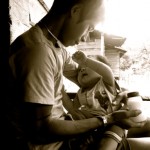
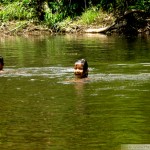
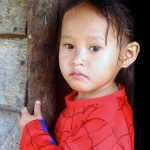
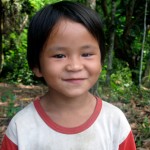
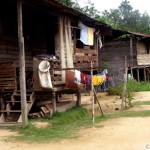


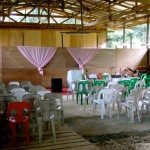
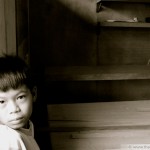
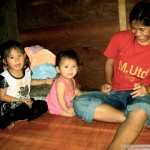
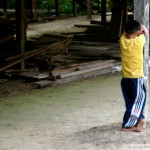
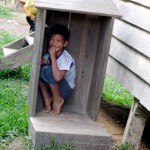

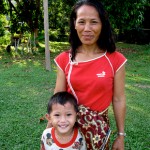
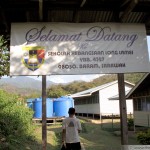
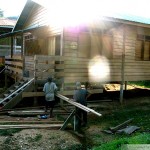
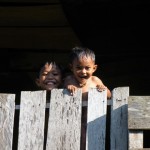
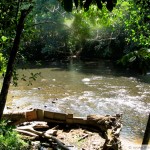
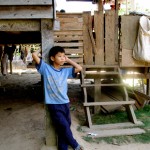
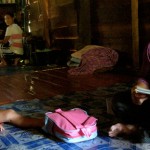
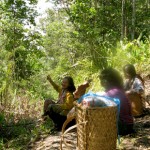
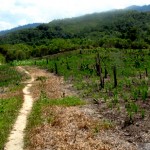
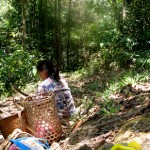

benny says
I am a Sarawakian, but unfortunately I [have] never met any Penan before. Their children are so cute. Hopefully, The Nut Graph‘s stories on the Penans can open eyes and change their lives for the better.
Kate says
The children look very happy.
I love how they make up their own games.
A lovely gallery!
K
reza says
It’s great that you’re writing abt this. I heart Koh Lay Chin.
Carl says
Assist them when they’re in need, but do not disturb their peaceful livelihood. Open eyes do expose them to all possible dangers / threats from our world that might possibly be brought upon them, though in many ways we know it’d bring the betterment of their life in terms of material needs.
CY says
Don’t see the Penan (or the poor, the marginalized, the women, the children, etc.) as victims or someone who needs help/assistance or who needs to change their lives. (Whose lives are we referring to, according whose standards?) Tell the stories as it is without any presumption or altruistic lens … having said that, your piece is an important one, telling the other side of the Penan’s life.
yak says
Long Lamai is place for almost 500 Penan communities. Although they have schools and an internet centre, they need a proper water pipes (clean water in their kitchens). This village is also without electricity, and the house condition is very bad. Just to highlight some of the Penan’s needs, generally.
Rabiah bt Bujang says
I believe the detriorated life of the Penan communities was due to negligence of government authorised bodies. With huge developement projects [being] implemented, no doubt there is much less commitment [to] focus on this group.
Siew Eng says
Also look at the cute Telomian. Jungle-smart dog. Malaysia’s very own purebreed pooch.
orlando jurid says
I believe if they are doing the right things and act at the [right] times, they will progress like other ethnic [groups]. Some of them who have PhD, Masters and degrees should help them. Hopefully the government will build up infrastructure such as water supply, electricity and so on.
Happy to see the green trees in the photos.
oj